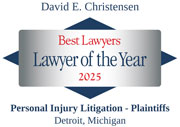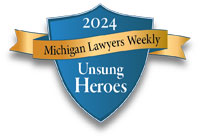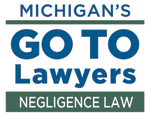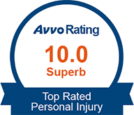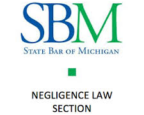
Catastrophic injuries often require extensive medical treatment, rehabilitation, and long-term care, which can be emotionally and financially devastating for victims and their families. These types of injuries may also prevent victims from returning to work or participating in activities they once enjoyed, significantly impacting their quality of life.
If your life has been turned upside down by an accident with devastating consequences, Christensen Law can help. Our Sterling Heights catastrophic injury lawyers will fight to get you the compensation you need to move forward.
What Is a Catastrophic Injury?
A catastrophic injury is a severe injury that causes long-term or permanent debilitating consequences for the victim. These types of injuries can dramatically and negatively impact a person’s quality of life, ability to work, and overall well-being.
Catastrophic injuries often happen as a result of:
- Car accidents
- Truck accidents
- Construction accidents
- Dog bites
- Bicycle accidents
- Motorcycle accidents
- Pedestrian accidents
- Slip and fall accidents
Due to the severe and life-altering nature of catastrophic injuries, victims may be entitled to substantial compensation to cover medical expenses, lost wages, pain and suffering, and other damages. It’s crucial for those who have suffered a catastrophic injury due to someone else’s negligence to seek legal representation from a Sterling Heights personal injury lawyer.
How Much Compensation Can You Get for a Catastrophic Injury in Sterling Heights?
The amount of compensation you can receive for a catastrophic injury largely depends on the specific circumstances and damages involved in your case. Instead of providing a specific dollar amount, it’s more useful to understand the various factors that determine the potential compensation.
The key factors that influence the compensation for a catastrophic injury include:
- Medical expenses: This covers all past and future medical costs related to the injury, such as hospital stays, surgeries, rehabilitation, medical equipment, and ongoing care. The more severe and long-lasting the injury, the higher the potential medical expenses.
- Lost wages and earning capacity: If the catastrophic injury prevents you from working or significantly impacts your ability to earn income, you may be entitled to compensation for lost wages and diminished future earning capacity.
- Pain and suffering: Catastrophic injuries often involve excruciating physical pain and a diminished quality of life. The compensation for pain and suffering can be substantial, particularly in cases of permanent disability or disfigurement.
- Loss of enjoyment of life: When a catastrophic injury prevents you from participating in activities you once enjoyed, such as hobbies, sports, or other pursuits, you may receive compensation for the loss of enjoyment of life.
- Household services: If the injury requires you to hire assistance for household tasks you were previously able to perform, such as cleaning, cooking, or yard work, you may be compensated for these services.
The specific amount of compensation will depend on the extent and severity of your damages, as well as the strength of the evidence presented in your case. An experienced catastrophic injury attorney can thoroughly evaluate your situation, calculate the full extent of your losses, and fight for the maximum compensation you deserve.
Types of Catastrophic Injuries You Can Get Compensation for in Sterling Heights
Some common examples of catastrophic injuries that may be the basis of a civil claim in Sterling Heights include:
- Spinal cord injuries: Damage to the spinal cord can result in partial or complete paralysis, loss of sensation, and loss of bodily functions below the level of the injury.
- Traumatic brain injuries (TBIs): Severe head trauma can cause cognitive impairments, memory loss, personality changes, and difficulty with speech, motor skills, and other functions.
- Amputations: The loss of a limb due to an accident can profoundly affect mobility, independence, and the ability to perform everyday tasks.
- Severe burns: Extensive burn injuries can result in disfigurement, scarring, loss of mobility, and ongoing medical complications.
- Organ damage: Injuries that cause damage to vital organs, such as the lungs, kidneys, or liver, can have life-threatening or life-altering consequences.
- Birth injuries: Injuries sustained during childbirth, such as cerebral palsy or Erb’s palsy, can lead to lifelong disabilities and developmental delays.
Any serious injuries that were caused by another party’s negligence can form the basis for a personal injury claim in Michigan.
How Shared Fault in an Accident Affects Catastrophic Injury Claims in Sterling Heights
In cases involving catastrophic injuries where fault is shared among multiple parties, compensation can be significantly impacted. Here’s how shared fault can affect catastrophic injury claims:
Modified Comparative Negligence Rule
Michigan follows a modified comparative negligence rule, which means that an injured party’s compensation can be reduced proportionately to the degree of fault in the accident. If the injured party is found to be more than 50% at fault, they are barred from recovering any damages.
When multiple parties are involved, the court or jury will determine the percentage of fault allocated to each party, including the injured plaintiff. This allocation of fault directly impacts the amount of compensation the plaintiff can receive.
If the plaintiff is found to be partially at fault, their total compensation award will be reduced by their percentage of fault. For example, if the plaintiff suffered $1 million in damages but was found to be 20% at fault, their compensation would be reduced by 20%, resulting in an award of $800,000.
Navigating shared fault scenarios in catastrophic injury cases can be extremely complex. A Sterling Heights catastrophic injury lawyer can be invaluable in these situations, ensuring that your rights are protected and that you receive the maximum compensation possible based on the allocation of fault.
The Time Limit to File a Catastrophic Injury Claim in Sterling Heights, MI
In Michigan, the statute of limitations for personal injury claims, including catastrophic injuries, is generally three years from the date of the injury. This means that you have three years from the date of the accident or incident that caused your catastrophic injury to file a lawsuit.
It’s important to note that these time limits are subject to certain exceptions and may vary depending on the specific circumstances of your case. Additionally, there are different procedural requirements and notice periods that must be followed for certain types of claims, such as claims against governmental entities.
To ensure that your rights are protected and that you do not miss the applicable deadline, it is strongly recommended that you consult with a personal injury attorney in Sterling Heights, Michigan, as soon as possible after sustaining a catastrophic injury.
How a Sterling Heights Catastrophic Injury Lawyer Proves Negligence
In Sterling Heights, Michigan, a catastrophic injury lawyer must prove negligence to hold the responsible party liable for damages in a catastrophic injury case. To establish negligence, the lawyer must demonstrate four essential elements:
Duty of Care
The lawyer must first show that the defendant owed the plaintiff a duty of care. This duty arises from the circumstances of the situation and can vary depending on the relationship between the parties involved. For example, a driver owes a duty of care to other motorists and pedestrians, while a property owner owes a duty of care to visitors on their premises.
Breach of Duty
Once the duty of care is established, the lawyer must prove that the defendant breached this duty through their actions or inactions. This means that the defendant failed to act in a reasonably prudent manner under the circumstances, thereby creating an unreasonable risk of harm.
Causation
The lawyer must then demonstrate that the defendant’s breach of duty was the actual and proximate cause of the plaintiff’s catastrophic injury. Actual causation means that the defendant’s negligent conduct directly led to the injury, while proximate causation implies that the injury was a foreseeable consequence of the defendant’s actions.
Damages
Finally, the lawyer must provide evidence of the damages suffered by the plaintiff as a result of the catastrophic injury. This can include medical expenses, lost wages, pain and suffering, and any other economic or non-economic losses incurred.
By proving these elements, we build a strong case for the compensation you will need to recover from your injuries to the fullest extent possible.
Talk to a Catastrophic Injury Lawyer in Sterling Heights, MI
If you’ve been a victim of a catastrophic injury, don’t wait any longer to get the legal support you need. Contact Christensen Law today to schedule a free, no-obligation consultation with one of our compassionate Sterling Heights catastrophic injury lawyers.
We’ll listen to your story, evaluate your case, and explain your options moving forward. Our team is ready to advocate for you and help you secure the maximum compensation you’re entitled to.
Take the first step towards holding the negligent party accountable and securing your future. Call us to learn more about your right to compensation in Michigan.



